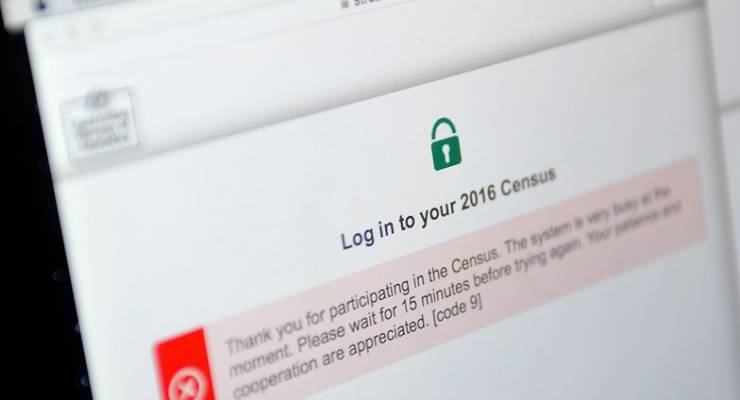
This week the Australian Bureau of Statistics released the first batch of data from its controversial 2016 census. Given all the furore over the census last year, can we trust the data?
In the aftermath of the census website crashing on census night, and the controversy over the ABS’ decision to retain names and addresses of people completing the census, questions have been raised over whether the data collected is be an accurate reflection of the Australian population.
Yesterday, the Australian Bureau of Statistics released the first snapshot of the data it has collected ahead of a full release of the data in June. The ABS yesterday said that according to the data collected the “typical” Australian is a 38-year-old married woman born in Australia with two children, a three-bedroom house and two vehicles.
It will not be known until the release of the full data and two accompanying reports in June on the 2016 census whether the data is reliable. The ABS has suggested in previous submissions to the Senate inquiry into the 2016 census that fewer people refused to complete the census in 2016 than in 2011, but that was based on a preliminary assessment in November.
[You’ve decided to boycott the census. Now what?]
As of the start of November, the ABS said 10,576 households had refused to submit a census form, fewer than the 13,194 refusals in 2011. As of November last year, no referrals had been made to the Commonwealth Director of Public Prosecutions for failing to comply with ABS orders to complete the census. There were 78 referrals as a result of the 2011 census.
The ABS can opt not to chase people for not having filled out a census form, but usually this is only done for compassionate reasons such as illness or death in the household, or because of language barriers, not because of concern about how the ABS was storing the data.
The ABS said it had undertaken a “comprehensive data verification process” on the names and addresses given and said there was no indication that there were a “significant number” of households either withholding their names and addresses or providing false information to evade the ABS data retention.
In response to public concern about the quality of the data, the ABS announced last year that in addition to the post enumeration survey (PES) — an independent household survey to measure the completeness of the census counts — there would also be an independent assurance panel reporting back to the Chief Statistician to provide extra assurance and transparency on the quality of the census.
The panel of six, chaired by James Cook University vice-chancellor Sandra Harding, was due to report at the end of March, but an ABS spokesperson told Crikey that the report was delayed so that the PES could be incorporated into the report to be released publicly with the rest of the census data in June.
[The census cannot force you to give your name]
“This report will be made publicly available on 27 June 2017, so that government, the community and other stakeholders can make their own informed judgments about the fitness-of-purpose of 2016 census data. The report is expected to contain embargoed statistical information and thus cannot be released in advance of the 27 June 2017 data release,” the spokesperson said.
In its response to the parliamentary committee’s report on the 2016 census released in late February, the ABS said it would consult the public on proposed changes to future censuses only after completing a privacy impact assessment not less than six months out from the next census. The agency also said would consider its communications strategy for how to inform people about their obligations to complete the census and the penalties for failing to do so.








News of the 38 year-old married woman with two children, two cars etc gave us a good laugh if nothing else.
…But presumably the ABS’ data recording the number of households which had “refused to submit a census form”, would not include the number of households who, by hook or by crook, managed to “avoid” having to submit a census form?
(Just asking for a friend.)
Yes Guy incognito, me too for more than a friend, more like ah““Bunch of friends?
As elsewhere –
How did QI get hold of these figures a couple of weeks ago – when Toksvig asked “Are you normal?….” Then went on about these figures.
“Average is a woman.”? What a surprise – when women live longer than men so there are more of them around?
As for “38” – an average age?
Apart from the record low compliance there is the unknowable aspect of how many people were so mightily pissed off by the high handed officiousness and disdain for privacy shown by the ABS that they went to inordinate effort to comprehensively supply false data.
I know of several and doubt that I’m Crusoe.
Ditto, I know some, too.
The ABS can kid itself it had a good response rate but a percentage of the information is from Fantasy Land.
I, for one, did not receive a census form. On contacting them, I was told that a paper would be sent to me, it could not be done online. It did not arrive then or ever. So my family details are safe.
Can they do anything approaching an acceptable level? We have the best Pollies that money can buy, so we can’t expect too much from their lackeys